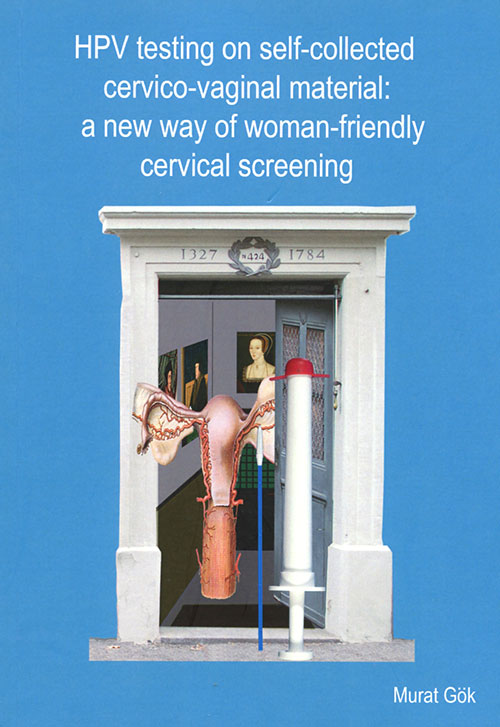Title thesis: HPV testing on self-collected cervico-vaginal material: a new way of woman-friendly cervical screening
Gök focussed in his thesis on the results of two large self-sampling studies that implement hrHPV testing on self-sampled (cervico)-vaginal material from non-attendees of the cervical screening programme. In PROHTECT (PRotection by Offering HPV TEsting on Cervico-vaginal specimens Trial) -1, the Delphi Screener and in PROHTECT-2, the Viba brush were offered for hrHPV testing to non-responders of the regular cervical screening programme in a large, population-based screening setting. Both studies showed that the response rate in the self-sampling group was significantly higher than in the control group that received a recall for regular cytology screening (PROHTECT-1: 27.5%, and PROHTECT-2: 30.8%; p<0.001 in both studies). The yield of CIN2+ and CIN3+ lesions in self-sampling responders were 1.3-1.5% and 1.0%, respectively.
In women with CIN2+ and CIN3+ the concordance was very high (93.8% and 95.5%, respectively). These studies indicated that offering self-sampling for hrHPV testing is a much better alternative for women not attending the screening programme than sending them a second screening reminder letter.
In a pooled analyses of both PROHTECT studies Gök evaluated attendance on ethnicity, age, and screening history. He concluded that screening history appeared the main determinant for risk of high-grade CIN and cervical cancer. These results indicate that offering self-sampling is a feasible and effective method to protect non-attendees of cervical screening, irrespective of their ethnic background, and that the highest benefit of this approach can be expected for underscreened and unscreened women.


